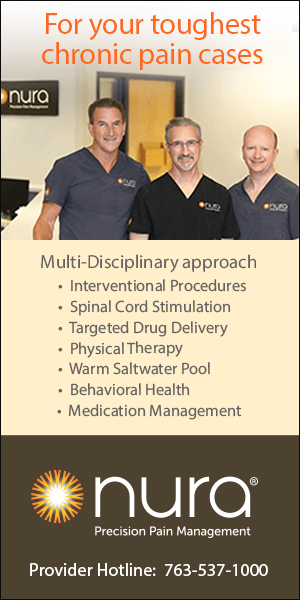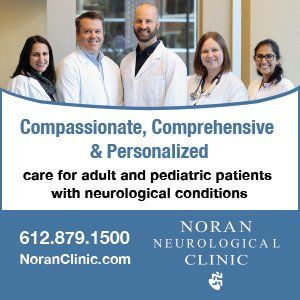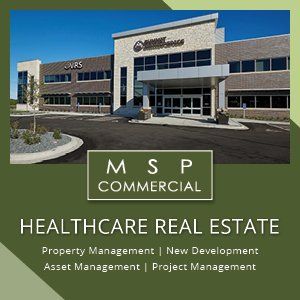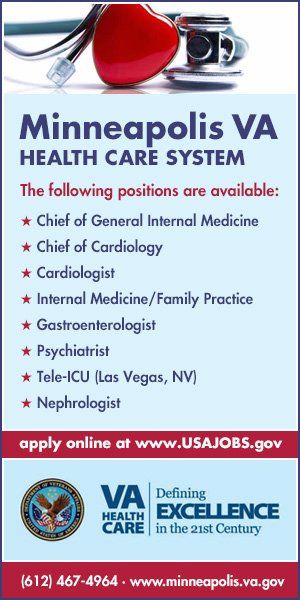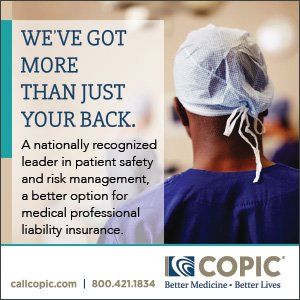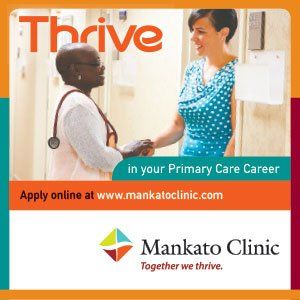innesota is now home to one million older adults, approximately 20% of our state’s population. By 2030, one quarter of Minnesotans will be over 65. As CEO of Knute Nelson, a senior services provider based in Alexandria, I see these demographics directly affecting my rural community.
May 2022
VOLUME XXXVI, NUMBER 02
May 2022, VOLUME XXXVI, NUMBER 02
Senior Care
Connected Communities
Aging well in greater Minnesota
BY MARK ANDERSON, MBA, CEO

A common fear of older adults is becoming a burden to others and gradually losing their independence. One bad fall or an episode of congestive heart failure can cause seniors and their family to panic about their safety. In my experience, most people wish to be as healthy and self-sufficient as possible. The reality is that 70% of us will need help with daily tasks as the years pass. We may start to have problems with balance or become unable to drive. Our eyesight may get fuzzy. Taking care of our home chores might get harder. The signs of aging may seem a long way off in your life, if you have not personally struggled with a chronic condition or seen a loved one lose self-sufficiency. Yet, it could happen tomorrow to someone in your family or one of your long time patients.
Providing access to care and housing in the area where people have lived their entire lives is important.
Most communities have options for aging services and supports; however, most people don’t know about them until a crisis hits. It can be hard to ask for help or even to know where to look. That is why last year, working with our local health care providers and other community partners, Knute Nelson launched a pilot project called Connected Communities for Healthy Aging (Connected Communities). It is funded by a $900,000 pilot grant through LeadingAge MN Foundation. The UCare Foundation contributed $100,000 to the innovative pilot. Our goal is to provide a more integrated system of caring for seniors and to help them live their best lives.
A new approach to supporting older adults
When our Alexandria Lakes Area Connected Communities pilot started, Olivia Mastry from The Collective Action Lab facilitated a wide-ranging discussion among project partners, including executives from Alomore Health, Horizon Public Health, Lakes Area Age Friendly, Dancing Sky Area Aging, PrimeWest Health, West Central MN Communities Action and UCare Medicare Advantage health plans. She challenged us to put the older adult at the center of our planning and to imagine new ways of working across professional boundaries to support healthy aging. What emerged was an ambitious plan to identify our area’s service providers and gaps in the five key areas of social determinants of health: health care access, lifelong education, economic stability, neighborhood and built environment and social and community context.
“For too many older Minnesotans – especially those living in remote rural communities – the prospect of healthy aging diminishes in their later years,” said Ghita Worcester, Senior Vice President of Public Affairs and Chief Marketing Officer. “Through this pilot project, we are creating integrated hubs of essential resources to help people recapture their sense of a life well-lived. We are excited to join this community collaborative bridging gaps to ensure optimal health and wellness.”
Early in our Connected Communities pilot, we identified more than 500 service options in our region that support seniors; despite that, most area residents are unaware of these resources. I have spent my career in senior care, and even I have been surprised to learn about all of the organizations dedicated to helping older people with services such as transportation, socialization and chores around the home. One solution we created is an Age Well Navigator who is connected to local resources. She can assist in supporting an older adult recovering from a hip replacement or help set up remote monitoring and telehealth services so that a person can continue living alone at home safely with appropriate supports and resources. This navigator lives in the area, knows who to call for various types of services and is connected via electronic health records to local health care professionals.
Another program component is an Age Well Care Manager who works with seniors to help them craft an individualized plan—for managing their clinical risk as well as increasing social engagement, if needed. This professional is a licensed social worker by training, works with local nurses for clinical expertise and is skilled at coordinating across health care partners, community-based organizations and aging services providers.
We identified more than 500 service options in our region that support seniors.
It takes a community-wide effort
This is no small undertaking. As a community leader, I am often in meetings with my colleagues across many disciplines. We are used to solving problems together. The COVID-19 pandemic has highlighted how interconnected we all are and how much our neighbors rely on us for their well-being. As a collaborative, we are applying lessons learned from this chaotic time such as the increased acceptance of telehealth and the desire for home-based care to improve the aging experience in the Alexandria area.
We believe that providing access to care and housing in the area where people have lived their entire lives is important. It allows them to stay connected to their families, friends, churches and communities. Maintaining those relationships is key for healthy aging. The longer aging adults are able to meaningfully participate in the community, the longer they will experience a higher quality of living. Residents in rural areas have often invested their lifetimes in the well-being of their towns. They have raised families, built businesses, mentored young people and have literally, in many cases, helped to shape the communities we enjoy today.
What if?
We are experimenting. There is no guarantee this new approach will work for everyone. But what if an older patient of yours moved to the Lakes Area for retirement, and your staff was able to connect them with our Age Well Navigator to introduce them to local health support resources? What if you knew there was an advocate who could support your patient through the complicated ecosystem of health care and relieve your concerns regarding addressing the whole person needs of your patient?
Getting older is a huge transition for all of us. Many people get help with the financial planning for their retirement years, but as a society we don’t spend much time on preparing for other aspects of aging. This can range from what happens when an older person needs to quit driving, how well they recover their mobility after joint replacement or how to arrange for meals to be delivered when cooking at home is not safe anymore.
Another example of planning ahead is encouraging family discussions about advanced care options. As health care professionals, we see families and their loved ones during some of the most stressful times of their lives. In my career, I have seen what a difference a health care directive can make when literal life-and-death decisions are made before a health set-back or crisis occurs. That is why one of the priority initiatives of our collaborative is working with a local organization, The Written Gift, to assist with advanced care planning.
Living our best lives
These are still early days of our Connected Communities project. The first local seniors are working with the Age Well Navigator and our Age Well Care Manager. We have launched a new digital service for older adults in our area that can provide tablet devices, vitals monitoring, digital literacy training, personal safety alerts and ways to connect with family as well as health professionals.
Over the next year, we expect to work with 200 older adults or caregivers in our five-county area, connecting them with navigation help and a care manager that are locally focused. We have been able to launch conversations with new insights that have not previously been considered by payers providing Medicare Advantage and Dual Eligible (Medicare and Medicaid) health plans such as Prime West and UCare. Having these representatives at the table during the design phase of our project has increased the flexibility to use the ingenuity of our local experts to create a solution to the triple aim of improved quality, reduced cost and enhanced engagement.
By pioneering a more integrated, coordinated and connected way of navigating aging, we are making aging adults the priority that they deserve to be. We are treating them as vital components of a healthy and balanced community. Imagine a way that encourages our elders to have greater self-worth as they age by more easily caring for the entire person. We still have much to learn, but we know we are on a good path to serving community members as they age in ways that foster their best lives as they define it.
Mark Anderson, MBA is President and CEO of Knute Nelson, a senior housing and home and community-based services organization based in Alexandria, Minnesota. He has served in the longterm care industry for nearly 25 years and serves as Past Chair of the LeadingAge Minnesota Board of Directors.
MORE STORIES IN THIS ISSUE
cover story one
Co-opetition: An emerging trend in health care
By David J. Voller, MBA, FACHE
cover story two
COVID-19 Litigation: Cases and Defenses
BY Sandra M. Cianflone, J.D.
capsules
Top news, physician appointments and recognitions
Interview
Moving Medical Education Beyond the Classroom
Meghan Walsh, MD MPH FACP
Senior Care
Connected Communities: Aging well in greater Minnesota
BY MARK ANDERSON, MBA, CEO
Minnesota health care roundtable
Care Transitions: Improving the safety net
Patient Perspective
The Impact of COVID on People with Disabilities: A need for proactive planning
By Joan Wilshire, MPA
AUGUST 2024
cover story
Assessing and Advancing Community Health: The overarching value of equity
BY Brooke Cunningham, MD, PhD
CONTACT
(612) 728-8600 | comments@mppub.com
758 Riverview Ave | St. Paul MN 55107
© Minnesota Physician Publishing · All Rights Reserved. 2023
quick links
We welcome the submission of manuscripts and letters for possible publication. All views and opinions expressed by authors of published articles are solely those of the authors and do not necessarily express those of Minnesota Physician Publishing Inc., or this publication. The contents herein are believed to be accurate but are not intended to replace medical, legal, tax, business or other professional advice or counsel. No part of this publication may be reprinted or reproduced without written permission from our publisher.









